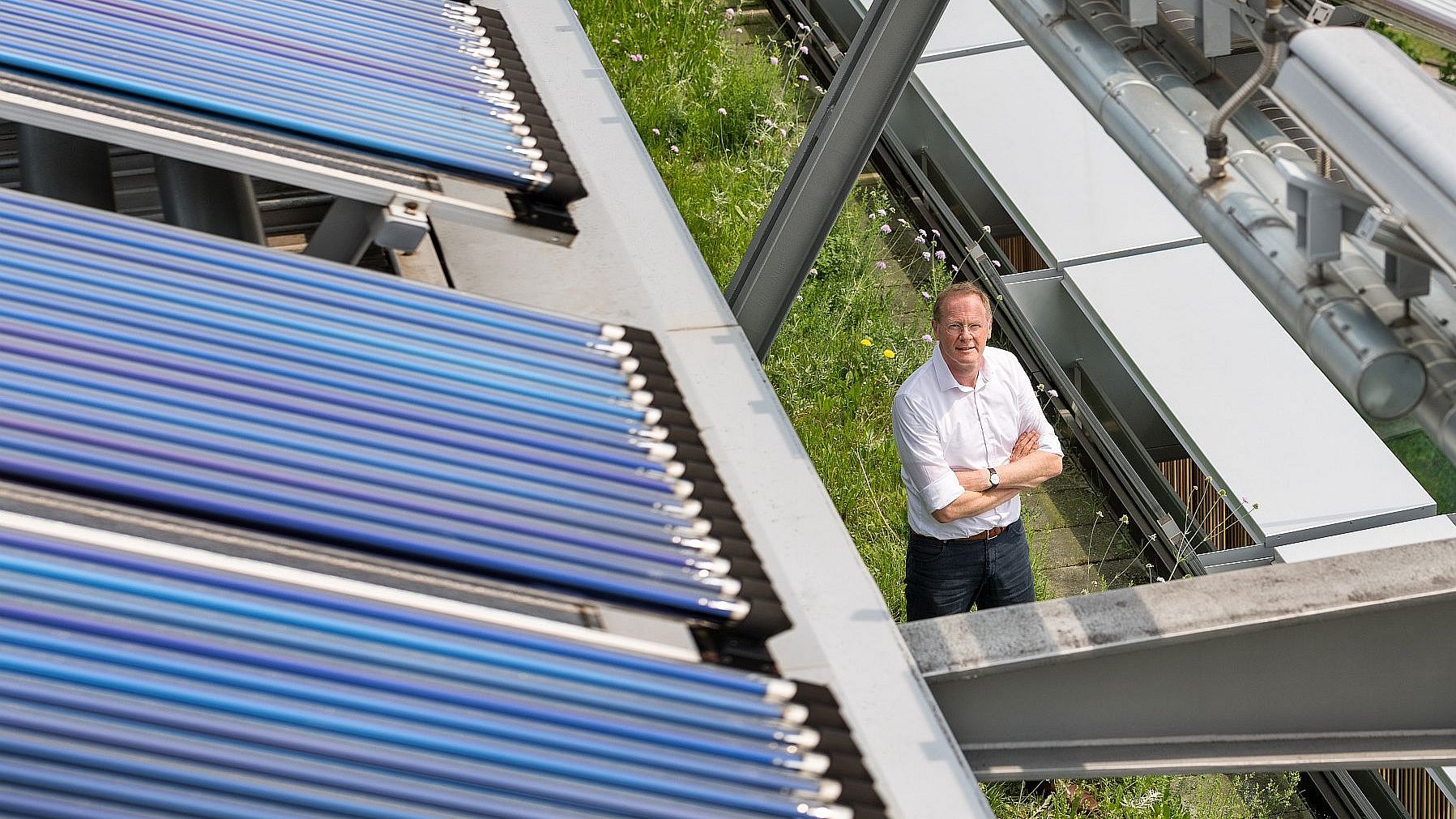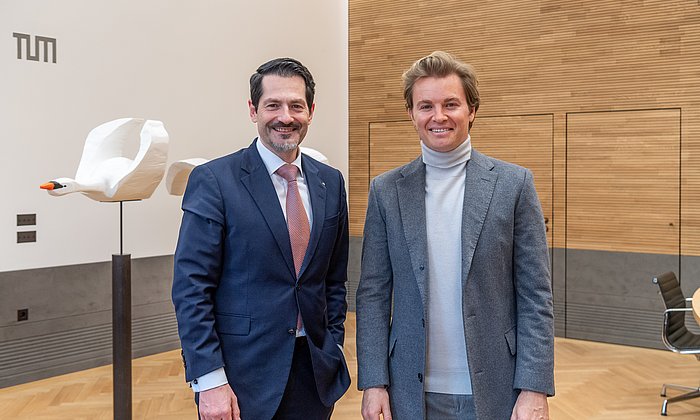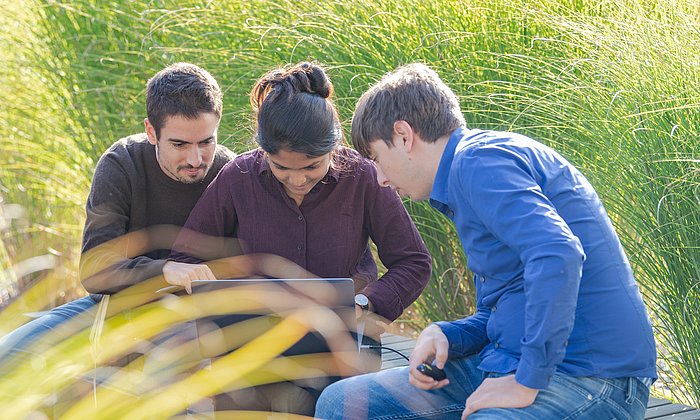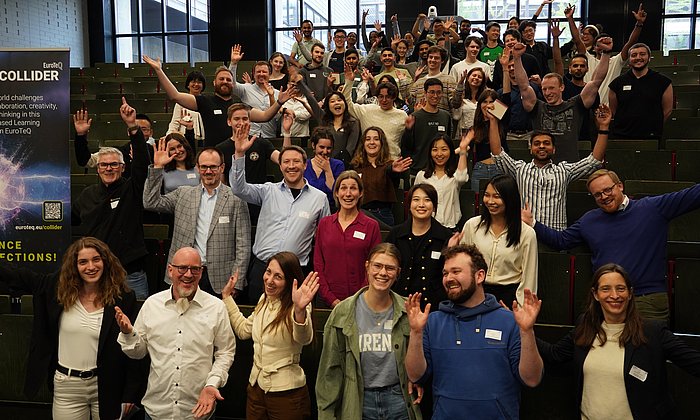Global discourse series “One Topic, One Loop“: Werner Lang
Getting everyone on board for greater sustainability

The fact that TUM has appointed a Vice President for Sustainable Transformation shows how seriously we take this issue. We want to integrate sustainability more deeply into the work and structure of our university – and engage all students and staff. As an architect, I have been involved in sustainable construction and resource-efficient energy management for many years, and my experience in planning and building shows that to become more sustainable, you have to take everyone with you!
In 2020, we also established a central Sustainability Office at TUM. Together with the Executive Board, the team coordinates university-wide activities. This includes our Sustainable Future Strategy 2030, in which we have defined goals and measures, as well as a new Sustainability Board that provides advice where necessary. In the Green Offices at the Weihenstephan and Straubing campuses, our students actively shape university life. To review and reduce energy consumption, resource requirements and greenhouse gas emissions internally, we have set up a Task Force for Sustainable Campus Development, which is working together closely with Real Estate Management.
Taking stock and setting new goals
These activities take time to get off the ground and have an impact, so it is all the more important to take stock of the status quo and set new goals and actions. Our focus is on campus operations and resource management: How can we reduce carbon emissions, make more sustainable use of materials, water, and green infrastructure, and address the issue of sustainable mobility?
Electricity and heat contribute about equally to our annual energy consumption of about 280 gigawatt hours. While all of TUM's electricity comes from renewable sources, there is still great potential in heat supply. We are the first university in Bavaria to have a climate action plan with very ambitious goals: We want to reduce our internal greenhouse gas emissions ("Scope 1") and the greenhouse gas emissions caused by the purchase of electricity and heat ("Scope 2") by 80 percent over the next six years. About 30 of the projects described in the Climate Action Plan will be launched in the next three years: we want to make our buildings as energy-efficient as possible and switch our energy supply to renewable sources. By 2023, we will have installed photovoltaic systems with a capacity of around 2 megawatts on the buildings of the School for Computation, Information, and Technology on the Garching research campus. The Free State of Bavaria is providing 7.2 million euros for the expansion of photovoltaics at TUM. We also want to look at mobility and how we can reduce greenhouse gas emissions when traveling to and from our sites and on business trips.
A festival to inspire
A special highlight will be our second Sustainability Day on June 12, which will be a sustainability festival for the entire university community. With more than 100 initiatives, our "Marketplace of Opportunities" will showcase how students and employees are getting involved, and more than 50 different workshops, lectures, and discussions will bring the diversity of sustainability topics to life. The goal of this event is to inform and network, but above all, to inspire people to take action.
After these brief highlights of TUM's activities, I look forward to finding out in this series how other universities are achieving greater sustainability. In the next article, Alyssa Gilbert will tell us about the projects she and her team at the Grantham Institute at Imperial College London are working on to find solutions to the major environmental challenges of our time.
Four people from four different countries and four different universities discuss a current topic in research and teaching. The series "One Topic, One Loop" begins with an initial question to which the first person responds and asks the next person another question on the same topic. The series ends with the first person answering the last question and reflecting on all previous answers. The topic of the first season was Large Language Models and their impact on research and teaching. In the second series, we look at how universities can integrate sustainability into their infrastructure and daily activities.
Our authors are: Werner Lang, Vice President for Sustainable Transformation, Alyssa Gilbert, Director of Innovation, Grantham Institute for Climate Change, Imperial London, Christine Nellemann, Dean for Sustainability, Technical University of Denmark and Sarah Billington, UPS Foundation Professor and Senior Fellow at the Woods Institute for the Environment at Stanford University.
- Prof. Dr. Werner Lang is Vice President for Sustainable Transformation and holds the Chair of Energy Efficient and Sustainable Planning and Building (ENPB) at the TUM School of Engineering and Design. From 2008–2010, he was Professor of Sustainable Building and Director of the Center for Sustainable Development at the University of Texas School of Architecture in Austin, Texas.
- TUM Sustainability Day 2024
- Sustainability at TUM
Contacts to this article:
Prof. Dr. Werner Lang
Technical University of Munich (TUM)
Chair of Energy Efficient and Sustainable Design and Building
+49 89 289 23988
w.lang@tum.de



